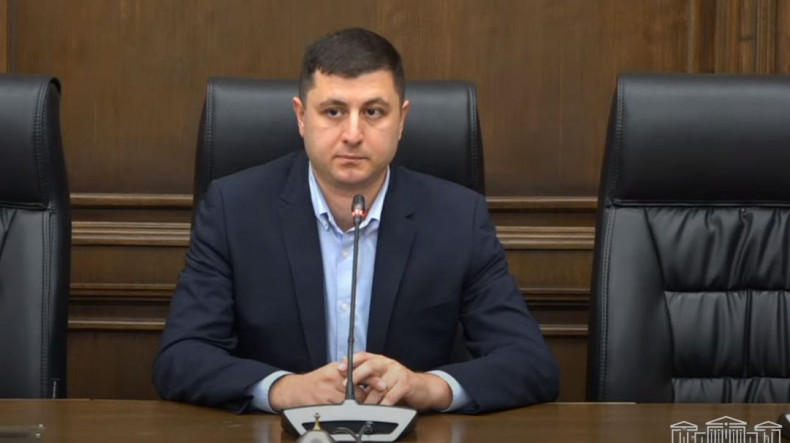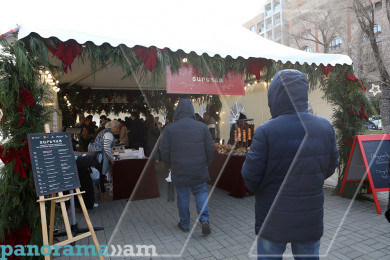
MP says Artsakh issue wasn't only 'obstacle' to Armenia-Azerbaijan 'peace deal'
Opposition MP Tigran Abrahamyan has brushed off the claims that the Artsakh issue was the only “obstacle” to a peace deal between Armenia and Azerbaijan which was removed after Azerbaijan’s military takeover of Artsakh (Nagorno-Karabakh).
“In fact, the Artsakh issue wasn’t the only hindrance to the signing of a so-called peace agreement between Armenia and Azerbaijan. There are many factors that created problems in the relations between Armenia and Azerbaijan and, naturally, served as an obstacle to the signing of this document," the MP, who represents the opposition Pativ Unem faction, told reporters on Thursday.
He pointed to the issues of border delimitation and demarcation, as well as unblocking of regional communications, stressing Azerbaijan is trying to push for the opening of the so-called “Zangezur corridor”.
"The Artsakh issue has only served as a fictitious obstacle during this whole period. Basically, there was a compromise between the Armenian and Azerbaijani authorities on the Artsakh issue, as evidenced by the Armenian leaders’ statements recognizing Artsakh as part of Azerbaijan over the past one and a half years. Thus, this issue could not have caused any obstacles to the signing of the agreement," Abrahamyan said.
The deputy claimed the military and political situation in the South Caucasus remained tense.
Speaking about Azerbaijan’s decision to cancel EU-brokered talks with Armenia in Granada initially scheduled for Thursday and whether it can lead to escalation of border tensions, Abrahamyan said: "Azerbaijan's political appetite has significantly increased. Baku will try to take advantage of the current situation, as well as the extremely tense relations between Armenia and the main regional actor, Russia, to get more. Azerbaijan is trying to solve two problems: to fully involve Turkey in the Armenia-Azerbaijan normalization, thus increasing its influence in the South Caucasus and, I guess, to revise its approaches and make new demands.”
Related news
Newsfeed
Videos






























